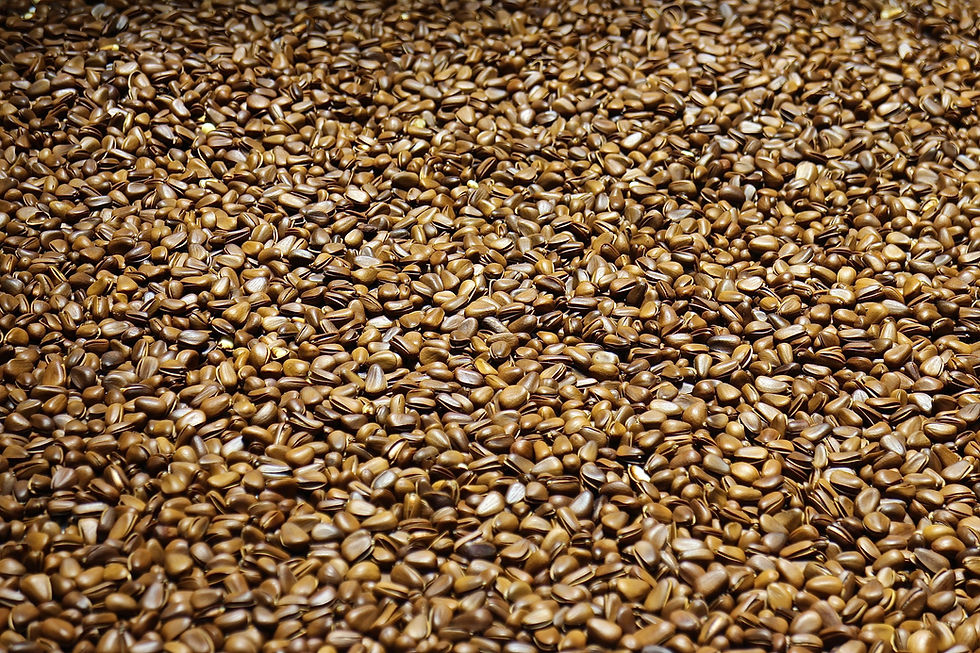Environment: Forests being Restored by Animals
- Ellis Jackson

- Dec 11, 2023
- 3 min read
Updated: Dec 12, 2023
Sophie Ranson investigates how fauna and seed dispersion may contribute to higher levels of forest restoration than previously thought.

Photo by Amber Shadow
Plant species survival depends on seed dispersal. That is, the process of transporting a seed to a new site for germination. The role of animals in this process has long been documented. In the tropics, for example, animals can disperse up to 80% of tree species. But new research indicates that fauna cultivates even greater levels of forest restoration than previously thought.
A recent study from the Yale School of the Environment has revealed the most intricate picture of wildlife’s role in seed dispersal. Using data collected across a century, the study enabled the analysis of regenerating forests across all stages of restoration - the first of its kind.
Zooming in on Panama’s regenerating tropical forests aged from 20 to 100 years, the study illuminates the role of animal species in seed dispersal parallel to the age of the forest. In younger regenerating forests, smaller terrestrial mammals – such as birds and bats – headed up most of the seed dispersal. That baton was passed to larger species, predominantly flightless mammals, in later stages (aged 20 years and over).
Ultimately, animals secure plant abundance and diversity.
Coupled with proximity to old growth forests, minimal human impact was also pinpointed as a key catalyst for greater seed dispersal levels. In areas with little to no hunting, for example, an abundance of fauna is available for seed dispersal.
Hunting is the greatest threat to wildlife populations in the Congo basin, with larger-bodied species most at risk. The reduction of keystone species, such as elephants and great apes, results in imbalances in critical ecological services, including seed dispersal, as biodiversity richness suffers across entire trophic chains.
And when the wildlife community collapses, so too does one of the earth’s mighty defence mechanisms against climate change: forests.
Did you know? More than 80% of tree species found in the tropics can be distributed by animals. - Max Planck Institute of Animal Behaviour
Why Forest Cover Matters
Forests cover just a third of the Earth’s surface, yet house up to 80% of biodiversity. These vast green spaces also absorb twice as many CO2 emissions as they emit, making them critical carbon sinks.
Deforestation swells mean regional air temperatures. In fact, the World Resources Institute estimates that tropical deforestation alone heats up the local average temperature by 1°C annually.
It’s no surprise, therefore, that forest restoration is chief on the list of many climate-focused projects. Yet few stem from the symbiotic relationship between animals and plant life.
“When we talk about forest restoration, people typically think about going out and digging holes and planting seedlings,” says Liza Comita, Professor of Tropical Forest Ecology at the Yale School of the Environment and co-contributor to the study.
“That's actually not a very cost-effective or efficient way to restore natural forests. If you have a nearby preserved intact forest, plus you have your animal seed dispersers around, you can get natural regeneration, which is a less costly and labour-intensive approach.”
“In these tropical environments, animals are paramount to a speedy recovery of forests." - Sergio Estrada-Villegas, Yale University, School of the Environment
Seeding new hope for forest restoration
Projects should instead focus on wildlife management, maximising biodiversity via efforts to attract seed-dispersing wildlife.
Promising methods include: increasing the structural complexity of the vegetation; levelling up the number of perches available; and making food sources, particularly fruit, plentiful.
The abundance of frugivores – an animal that thrives predominantly on fruit – in deforested areas leads to a “seed rain evenness and diversity up to five times greater” than areas with less fruit availability, according to one study.
Beyond seed dispersal, animals also foster fruitful results for fertilisation, which is foundational to forest restoration. Fertilisation ramps up biological activity, replenishing lost nutrients in a site.
“In these tropical environments, animals are paramount to a speedy recovery of forests,” emphasises Sergio Estrada Villegas, the study’s lead author. Estrada Villegas hopes the findings will build a new roadmap for restoration projects, expediting nature’s bounty in forests globally.
Researched by Phoebe Agnew-Bass / Editor: Ellis Jackson / Online Editor: Harry Hetherington













Comments